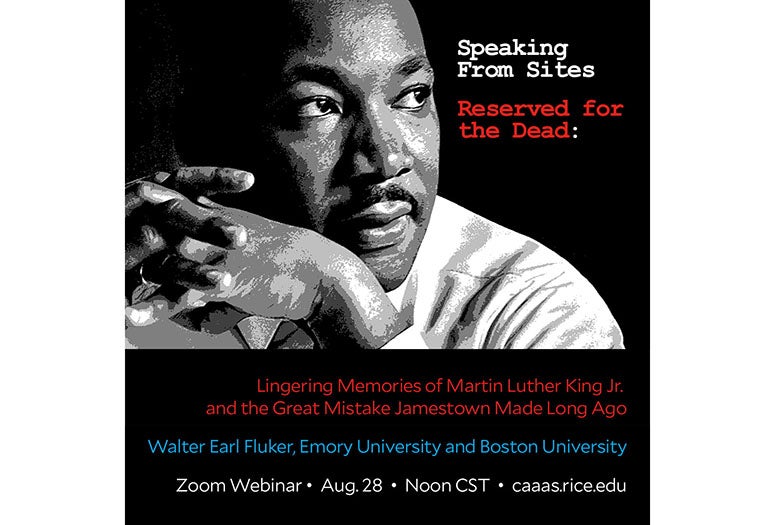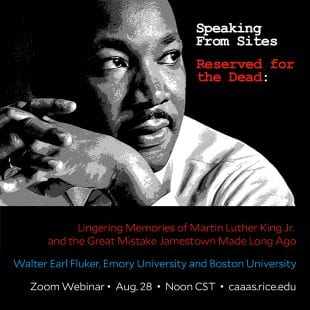In commemoration of the anniversary of the 1963 March on Washington for Jobs and Freedom, at which Martin Luther King Jr. delivered his historic “I Have a Dream” speech, the Center for African and African American Studies (CAAAS) will host an Aug. 28 lecture via Zoom by renowned speaker Walter Earl Fluker.
“Speaking from Sites Reserved for the Dead: Lingering Memories of Martin Luther King Jr. and The Great Mistake Jamestown Made Long Ago” will examine the emergence of new activist leaders and the existential and ethical issues at stake in this moment.
An expert in ethical leadership who has lectured around the world, Fluker is the Dean’s Professor of Spirituality, Ethics and Leadership at Emory’s Candler School of Theology, the Martin Luther King, Jr. Professor Emeritus of Ethical Leadership at Boston University's School of Theology.
“If you are working towards achieving justice and equality, there are different routes one can take, but one of them which was championed by Dr. Martin Luther King Jr. was that of a peaceful struggle,” said Domingues, associate professor of history and director of undergraduate studies for CAAAS.
“That doesn’t mean ‘sit on our hands and do nothing,’ of course," he said. "It means you’re educating yourself, you’re marching, you’re protesting, you do the work of raising awareness, the work towards an understanding.”
Revisiting the impact of King’s speech that day 57 years ago “reminds us of this important route to achieve social justice and equality,” Domingues said.
Something that’s often overlooked when recalling that day, said associate professor of English and CAAAS steering committee member Nicole Waligora-Davis, is that King’s March on Washington was also a march on poverty, which remains an entrenched issue today.
“We have to really tackle the problem of poverty, and MLK understood at its core the importance of race in shaping how poverty gets distributed, how resources get distributed, nationally but also internationally,” Waligora-Davis said.
Fluker’s talk will begin at noon. Guests are invited to register for the Zoom webinar online. Following the lecture, Domingues will moderate a Q&A.
For more information, visit https://caaas.rice.edu/event-to-commemorate-march-on-washington.


